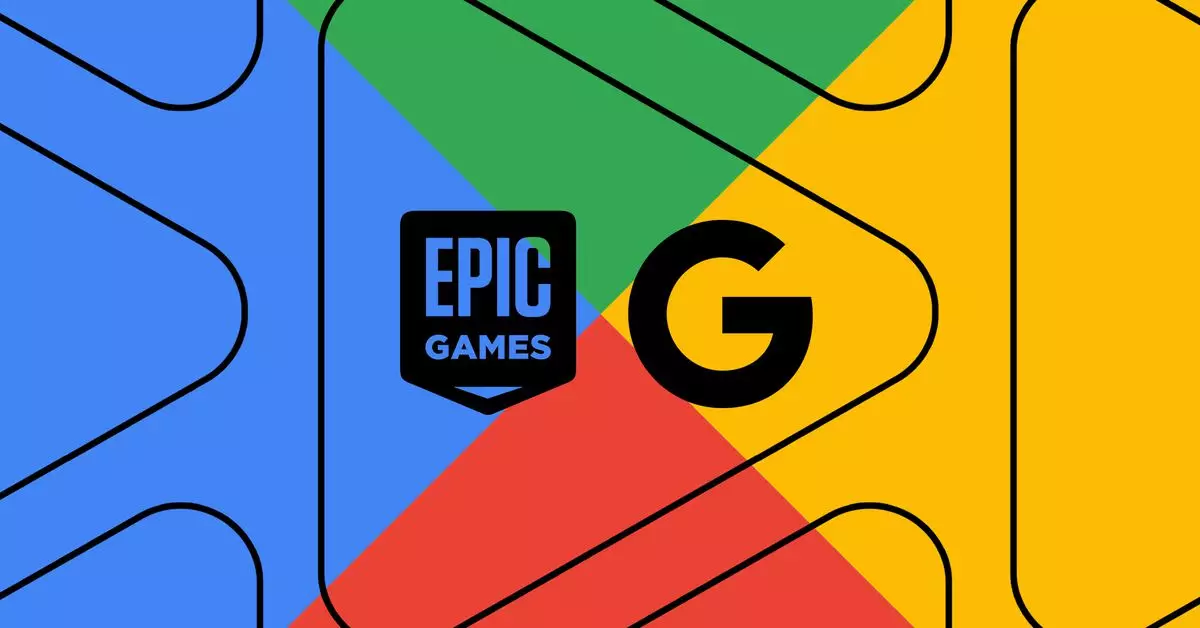The recent ruling by Judge James Donato in the Epic v. Google case marks a pivotal moment in the battle against perceived monopolistic practices in the tech industry, specifically concerning mobile application distribution. Google Play, the primary app store for Android devices, has been accused of anti-competitive behaviors and stifling competition within its ecosystem. The court’s decision to impose structural changes to the platform not only holds significant implications for Google but also sets a precedent for all digital marketplaces.
Judge Donato’s ruling mandates that Google must open its Play Store to third-party app stores for three years, starting from November 2024. This requirement includes permitting rival app distributors full access to the extensive catalog of apps available on Google Play unless developers choose to opt out. Such a measure dismantles the barriers that have constrained competition, fostering an environment where developers and consumers can explore alternatives.
Furthermore, the judge’s ruling contains specific injunctions aimed at dismantling various anti-competitive practices. Google can no longer force developers to use its payment system, a practice deemed to constitute an illegal tie-in. Starting in 2024, Android developers will have the freedom to inform users about alternative payment methods and even link to external sources for downloading applications. Developers will also gain autonomy in setting prices without restrictions imposed by Google’s billing service.
For developers, this decision symbolizes a shift toward greater agency and an opportunity to establish more favorable revenue models. By breaking free from Google’s stringent payment requirements, developers can explore innovative pricing strategies that better align with their audiences. Moreover, the ability to redirect users to external payment methods could significantly lower operational costs, allowing developers to retain a more substantial percentage of revenue.
Consumers too will benefit from this ruling. Increased competition within the app marketplace can lead to a more diverse range of apps and services, often resulting in lower prices and enhanced features. With more options at their disposal, users can choose the platforms that best suit their needs, fostering a healthier digital ecosystem.
The Epic v. Google case, filed alongside a similar lawsuit against Apple, was not merely a skirmish between a major game developer and a tech giant. Instead, it represents a seismic shift in the regulatory landscape concerning digital markets. Epic’s bold move to challenge the app stores stemmed from its frustration over the perceived exploitation by both Google and Apple through the 30 percent commission on in-app purchases.
While Apple has navigated its case with a relatively more favorable outcome, Google’s situation appears precarious. The firm not only faces the prospect of implementing the judge’s orders but also is likely to undergo a prolonged appeals process similar to that pursued by Apple. If successful, these developments could fundamentally alter the operational frameworks of both platforms.
Despite the significant changes imposed by the ruling, Google still retains some degree of control over its app store’s safety protocols. The judge has permitted Google to introduce “reasonable measures” that are essential for maintaining security while allowing competition to flourish. Importantly, Google can charge third-party stores a fee for policing their apps, creating a new dimension to its business model.
The formation of a Technical Committee composed of representatives from both Google and Epic, tasked with resolving disputes during the transition, emphasizes the need for collaborative engagement between the two entities in an evolving marketplace.
The ramifications of Judge Donato’s ruling in Epic v. Google extend far beyond the immediate context of app distribution. This landmark judgment embodies a critical turning point in tech regulation, encouraging more equitable and dynamic competition among digital marketplaces. As developers gain newfound freedoms and consumers reap the benefits of expanded choices, the focus shifts to how major players like Google will adapt to this changing landscape. The ruling heralds a new era in tech, characterized by increased competition, innovation, and better outcomes for users and developers alike.

